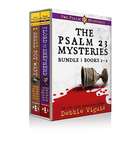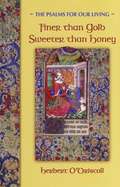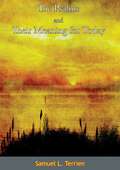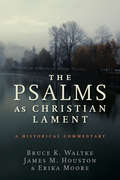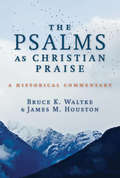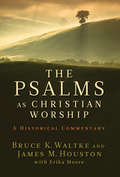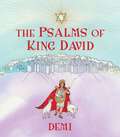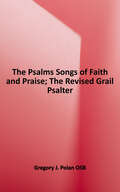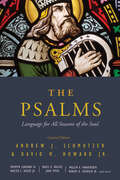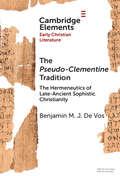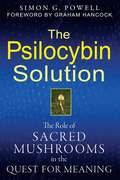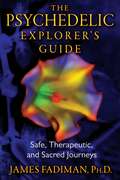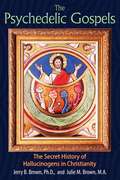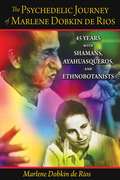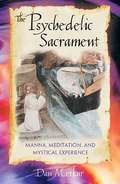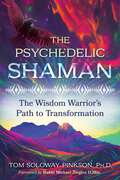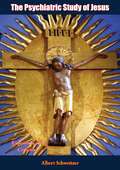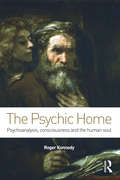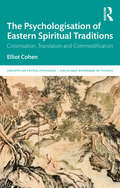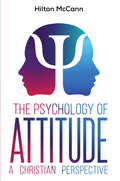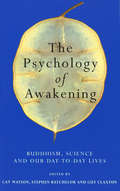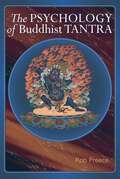- Table View
- List View
The Psalm 23 Mysteries Bundle, The Lord is My Shepherd & I Shall Not Want - eBook [ePub]
by Debbie ViguieThis bundle contains The Lord Is My Shepherd and I Shall Not Want. The Lord Is My Shepherd Cindy's church is getting ready to celebrate Easter, and Jeremiah's Temple is preparing for Passover when Cindy literally stumbles over the body of an unknown man lying dead in the sanctuary. The church was locked, and a bloody cross necklace on the floor seems to be the only clue. The killer is likely a member of the congregation, but there are hints that similar deaths have happened in the past. Are Cindy and Jeremiah dealing with a serial killer? They have to unravel the clues before Easter Sunday arrives and more people die. I Shall Not Want Charity work can be murder! It's Thanksgiving and Joseph Tyler, one of the members of Cindy's church, has organized a new charity that provides homeless people with rescue dogs to love and care for. But one by one, the homeless recipients are being murdered and their dogs stolen. Could an overly competitive millionaire with his prize-winning pooches and a grudge be behind the crimes? Or could it be someone much closer to Joseph who has something sinister to hide? Cindy and Jeremiah must rush to find a killer before he strikes again.
The Psalms
by Herbert O'DriscollThe psalms are among the most sublime poetry in the world, offering us inexhaustible wells of meaning. Herbert O'Driscoll adeptly dips into their sacred depths and draws up sparkling insights to refresh the soul. <P><P>Our contemporary spirits can feel at home in the world of psalms. All of human experience is there - joy and sadness, love and anger, trust and despair. The gift of the psalms lies in their challenge to us; they invite us into dialogue with them and with the God who inspired them. <P><P>The psalms guide us to express our deepest feelings to God, and their response floods the soul with assurance. Justice is done. Healing takes place. Grace is given. Praise for God with Us: The Companionship of Jesus in the Challenges of Life: "God with Us, approached in a spirit of openness and honesty, can be transforming. Its thought is deep but its language is accessible - written with sensitivity and spirituality." -Montreal Anglican
The Psalms and Their Meaning for Today
by Samuel L. TerrienTHE vitality of the Hebrew Psalms in the worship life of the Western world is a noteworthy and almost enigmatic fact. No other book of hymns and prayers has been used for so long a time and by so many diverse men and women. Here is an anthology of religious poems composed and collected in a remote land many centuries ago. The Temple of Jerusalem, in whose shadow most of their poets lived, has remained destroyed for more than fifty generations. Its cultic pageantry and ritual, of which the Psalms were the theological expression and lyrical adornment, have gone the way of ancient Babel and Memphis. Yet this archaic hymnal has survived the cult for which it was created.Today the Hebrew Psalms are read, chanted, or sung by countless people, every day of the year and everywhere on the face of the earth. They constitute the core of personal prayer and corporate adoration for all forms of Judaism—Orthodox, Conservative, Reformed—and for all churches of Christendom—Greek, Roman, Protestant. Such an enduring and widespread power of survival may be claimed for no other book of poetry and song.
The Psalms as Christian Lament: A Historical Commentary
by Bruce K. Waltke James M. Houston Erika MooreThe Psalms as Christian Lament, a companion volume to The Psalms as Christian Worship, uniquely blends verse-by-verse commentary with a history of Psalms interpretation in the church from the time of the apostles to the present. Bruce Waltke, James Houston, and Erika Moore examine ten lament psalms, including six of the seven traditional penitential psalms, covering Psalms 5, 6, 7, 32, 38, 39, 44, 102, 130, and 143. The authors -- experts in the subject area -- skillfully establish the meaning of the Hebrew text through careful exegesis and trace the church's historical interpretation and use of these psalms, highlighting their deep spiritual significance to Christians through the ages. Though C. S. Lewis called the "imprecatory" psalms "contemptible," Waltke, Houston, and Moore show that they too are profitable for sound doctrine and so for spiritual health, demonstrating that lament is an important aspect of the Christian life.
The Psalms as Christian Praise: A Historical Commentary
by Bruce K. Waltke James M. HoustonTwo respected scholars explore the heart of the PsalmsFollowing in the style of their companion volumes, The Psalms as Christian Worship and The Psalms as Christian Lament, Bruce Waltke and James Houston now explore the depths of Christian praise. Each volume uniquely blends verse-by-verse commentary with a history of Psalms interpretation in the church from the time of the apostles to the present. Since praise is the essence of the book of Psalms, Waltke and Houston have narrowed the focus to Book IV of the Psalter (Psalms 90-106), which magnify God and proclaim him king. To give voice to the psalmist, the authors (carefully) translate and explain each psalm and summarize its theological message. This is followed by listening to the voice of godly churchmen whose comments have stood the test of time. The Psalms as Christian Praise is ideal for anyone seeking to better understand the praise of Israel as found in the Psalms and how Christians also use these Psalms in worship.
The Psalms as Christian Praise: A Historical Commentary
by Bruce K. Waltke James M. HoustonTwo respected scholars explore the heart of the PsalmsFollowing in the style of their companion volumes, The Psalms as Christian Worship and The Psalms as Christian Lament, Bruce Waltke and James Houston now explore the depths of Christian praise. Each volume uniquely blends verse-by-verse commentary with a history of Psalms interpretation in the church from the time of the apostles to the present. Since praise is the essence of the book of Psalms, Waltke and Houston have narrowed the focus to Book IV of the Psalter (Psalms 90-106), which magnify God and proclaim him king. To give voice to the psalmist, the authors (carefully) translate and explain each psalm and summarize its theological message. This is followed by listening to the voice of godly churchmen whose comments have stood the test of time. The Psalms as Christian Praise is ideal for anyone seeking to better understand the praise of Israel as found in the Psalms and how Christians also use these Psalms in worship.
The Psalms as Christian Worship: An Historical Commentary
by Bruce K. Waltke James M. HoustonThis commentary uniquely combines a verse-by-verse exposition of the Hebrew text of selected Psalms with a history of their interpretation in the Church from the time of the apostles to the present. / Bruce K. Waltke begins the collaboration by first skillfully establishing the meaning of the chosen psalms through careful exegesis in which each text is interpreted in light of its historical backgrounds, its literary form, and the poet’s rhetoric. James M. Houston then exposits each text’s relevance in conjunction with the Church’s interpretation of it throughout her history. To further the accuracy of this interpretation, he commissioned fresh translations of numerous Latin and Middle English texts. / The authors’ purpose in creating this volume was not merely to produce a masterful commentary. Rather, they wished to aid in enriching the daily life of the contemporary Christian and to deepen the church’s community. Waltke and Houston here bring together the two voices of the Holy Spirit — heard infallibly in Scripture and edifyingly in the Church’s response — in a rare and illuminating combination.
The Psalms of King David
by DemiThe Bible tells us that King David was a man after God&’s own heart (1 Samuel 13:14), chosen by Him to lead his people Israel. David began life as a simple shepherd, but his fearless courage and unshakeable faith in God would see him slay the Philistine giant Goliath and become a celebrated warrior. After the death of King Saul, the Lord God would establish David as king over Israel. Soon, he would go on to conquer the fortress city of Jerusalem and install the Ark of the Covenant within its walls. But, above all, King David would be remembered as the inspired poet and harpist who composed the Biblical Psalms to the Lord his God. Award-winning author, Demi, recounts the dramatic story of David, the shepherd who rose to become king.
The Psalms songs of faith and praise: the Revised Grail Psalter with commentary and prayers
by Gregory J. PolanGraceful and inspiring, here is an insightful and moving introduction to the Book of Psalms as prayer.
The Psalms through Three Thousand Years: Prayerbook of a Cloud of Witnesses
by William L. HolladayThis book has three sections; Part One, "The Psalms Take Shape--A Reconstruction" attempts to discern the origin of the Psalms and psalm collections; Part 2, "The Psalter through History" describes the use of the psalms at Qumran (the Dead Sea Scroll community) in the New Testament and in the Jewish and Christian communities down through the ages; Part 3, "Current Theological Issues" explores some of the questions of the use, translation, and interpretation of the Psalms that confront us today.
The Psalms: Language for All Seasons of the Soul
by Andrew J. Schmutzer David M. Howard Jr.The Psalms: Language for All Seasons of the Soul brings together essays from eighteen Old Testament scholars discussing the latest in Psalms scholarship and applying exegetical insights to the life of faith. These essays explore the full range of emotion expressed in the Psalms—from elation to distress—while weaving together observations from biblical scholarship and theology. The reader will gain valuable insights into how the Psalms speak to his or her soul. The book is divided into five sections that:Give an overview of Psalms studies in the 21st centuryDiscuss psalms of praiseExplore psalms of lamentLook at the big picture of the Psalter as a bookPresent sermons on the Psalms that are models of evangelical engagement with the text. A Select Bibliography for Psalms Study is included at the end of the book.
The Psalms: Language for All Seasons of the Soul
by Andrew J. Schmutzer David M. Howard Jr.The Psalms: Language for All Seasons of the Soul brings together essays from eighteen Old Testament scholars discussing the latest in Psalms scholarship and applying exegetical insights to the life of faith. These essays explore the full range of emotion expressed in the Psalms—from elation to distress—while weaving together observations from biblical scholarship and theology. The reader will gain valuable insights into how the Psalms speak to his or her soul. The book is divided into five sections that:Give an overview of Psalms studies in the 21st centuryDiscuss psalms of praiseExplore psalms of lamentLook at the big picture of the Psalter as a bookPresent sermons on the Psalms that are models of evangelical engagement with the text. A Select Bibliography for Psalms Study is included at the end of the book.
The Pseudo-Clementine Tradition: The Hermeneutics of Late-Ancient Sophistic Christianity (Elements in Early Christian Literature)
by Benjamin M. De VosThis Element, through detailed example, scrutinizes the exact nature of Christian storytelling in the case of the Greek Pseudo-Clementines, or Klementia, and examines what exactly is involved in the correct interpretation of this Christian prose fiction as a redefined pepaideumenos. In the act of such reconsideration of paideia, Greek cultural capital, and the accompanying reflections on prose literature and fiction, it becomes clear that the Klementinist exploits certain cases of intertextual and meta-literary reflections on the Greek novelistic fiction, such as Chariton's Chaereas and Callirhoe and Achilles Tatius' Leucippe and Cleitophon, in order to evoke these reconsiderations of storytelling, interpretive hermeneutics, and one's role as a culturally Greek reader pepaideumenos. This Element argues that the Klementia bears witness to a rich, dynamic, and Sophistic context in which reflections on paideia, dynamics regarding Greek identity, and literary production were neatly intertwined with reflections on reading and interpreting truth and fiction.
The Psilocybin Solution: The Role of Sacred Mushrooms in the Quest for Meaning
by Graham Hancock Simon G. PowellHow psilocybin mushrooms facilitate a direct link to the wisdom of Nature and the meaning of life • Examines the neurochemistry underlying the visionary psilocybin experience • Explains how sacred mushrooms help restore our connection to the natural intelligence of Nature • Reviews the research on psilocybin’s ability to dispel anxiety in the terminally ill and its helpful effects on obsessive-compulsive disorder It has been more than 50 years since sacred mushrooms were plucked from the shamanic backwaters of Mexico and presented to the modern world by R. Gordon Wasson. After sparking the psychedelic era of the 1960s, however, the divine mushroom returned underground from whence it mysteriously originated. Yet today, the mushroom’s extraordinary influence is once again being felt by large numbers of people, due to the discovery of hundreds of wild psilocybin species growing across the globe. In The Psilocybin Solution, Simon G. Powell traces the history of the sacred psilocybin mushroom and discusses the shamanic visionary effects it can induce. Detailing how psilocybin acts as a profound enhancer of consciousness and reviewing the research performed by the Multidisciplinary Association for Psychedelic Studies (MAPS), Johns Hopkins University, and the Heffter Research Institute on psilocybin’s ability to dispel anxiety in the terminally ill and its helpful effects on obsessive-compulsive disorder, he examines the neurochemistry, psychology, and spirituality underlying the visionary psilocybin experience, revealing the interface where physical brain and conscious mind meet. Showing that the existence of life and the functioning of mind are the result of a naturally intelligent, self-organizing Universe, he explains how sacred mushrooms provide a direct link to the wisdom of Nature and the meaning of life.
The Psychedelic Explorer's Guide: Safe, Therapeutic, and Sacred Journeys
by James FadimanPsychedelics for spiritual, therapeutic, and problem-solving use • Presents practices for safe and successful psychedelic voyages, including the benefits of having a guide and how to be a guide • Reviews the value of psychedelics for healing and self-discovery as well as how LSD has facilitated scientific and technical problem-solving • Reveals how microdosing (ultr-low doeses) improve cognitive functioning, emotional balance, and physical stamina • This year 600,000 people in the U.S. alone will try LSD for the the first time, joining the 23 million who have already experimented with this substance Called “America’s wisest and most respected authority on psychedelics and their use,” James Fadiman has been involved with psychedelic research since the 1960s. In this guide to the immediate and long-term effects of psychedelic use for spiritual (high dose), therapeutic (moderate dose), and problem-solving (low dose and microdose) purposes, Fadiman outlines best practices for safe, sacred entheogenic voyages learned through his more than 40 years of experience--from the benefits of having a sensitive guide during a session (and how to be one) to the importance of the setting and pre-session intention. Fadiman reviews the newest as well as the neglected research into the psychotherapeutic value of visionary drug use for increased personal awareness and a host of serious medical conditions, including his recent study of the reasons for and results of psychedelic use among hundreds of students and professionals. He reveals new uses for LSD and other psychedelics, including microdosing, extremely low doses, for improved cognitive functioning and emotional balance. Cautioning that psychedelics are not for everyone, he dispels the myths and misperceptions about psychedelics circulating in textbooks and clinics as well as on the internet. Exploring the life-changing experiences of Ram Dass, Timothy Leary, Aldous Huxley, and Huston Smith as well as Francis Crick and Steve Jobs, Fadiman shows how psychedelics, used wisely, can lead not only to healing but also to scientific breakthroughs and spiritual epiphanies.
The Psychedelic Gospels: The Secret History of Hallucinogens in Christianity
by Jerry B. Brown Julie M. BrownReveals evidence of visionary plants in Christianity and the life of Jesus found in medieval art and biblical scripture--hidden in plain sight for centuries• Follows the authors’ anthropological adventure discovering sacred mushroom images in European and Middle Eastern churches, including Roslyn Chapel and Chartres• Provides color photos showing how R. Gordon Wasson’s psychedelic theory of religion clearly extends to Christianity and reveals why Wasson suppressed this information due to his secret relationship with the Vatican• Examines the Bible and the Gnostic Gospels to show that visionary plants were the catalyst for Jesus’s awakening to his divinity and immortalityThroughout medieval Christianity, religious works of art emerged to illustrate the teachings of the Bible for the largely illiterate population. What, then, is the significance of the psychoactive mushrooms hiding in plain sight in the artwork and icons of many European and Middle-Eastern churches? Does Christianity have a psychedelic history?Providing stunning visual evidence from their anthropological journey throughout Europe and the Middle East, including visits to Roslyn Chapel and Chartres Cathedral, authors Julie and Jerry Brown document the role of visionary plants in Christianity. They retrace the pioneering research of R. Gordon Wasson, the famous “sacred mushroom seeker,” on psychedelics in ancient Greece and India, and among the present-day reindeer herders of Siberia and the Mazatecs of Mexico. Challenging Wasson’s legacy, the authors reveal his secret relationship with the Vatican that led to Wasson’s refusal to pursue his hallucinogen theory into the hallowed halls of Christianity.Examining the Bible and the Gnostic Gospels, the authors provide scriptural support to show that sacred mushrooms were the inspiration for Jesus’ revelation of the Kingdom of Heaven and that he was initiated into these mystical practices in Egypt during the Missing Years. They contend that the Trees of Knowledge and of Immortality in Eden were sacred mushrooms.Uncovering the role played by visionary plants in the origins of Judeo-Christianity, the authors invite us to rethink what we know about the life of Jesus and to consider a controversial theory that challenges us to explore these sacred pathways to the divine.
The Psychedelic Journey of Marlene Dobkin de Rios: 45 Years with Shamans, Ayahuasqueros, and Ethnobotanists
by Marlene Dobkin de RiosA look inside almost half a century of pioneering research in the Amazon and Peru by a noted anthropologist studying hallucinogens, including ayahuasca • Reveals how ayahuasca successfully treats psychological and emotional disorders • Examines adolescent drug use from a cross-cultural perspective • Discusses the deleterious effects of drug tourism in the Amazon Ayahuasca is an alkaloid-rich psychoactive concoction indigenous to South America that has been employed by shamans for millennia as a spirit drug for divinatory and healing purposes. Although the late Harvard ethnobotanist Richard Evans Schultes was credited in the early 1950s as being the first to document the use of ayahuasca, other researchers, such as the distinguished anthropologist Marlene Dobkin de Rios, were responsible for furthering his findings and uncovering the curative capabilities of this amazing compound. The Psychedelic Journey of Marlene Dobkin de Rios presents the accumulated experience of de Rios’s 45 years of pioneering field studies in the area of hallucinogens in Peru and the Amazon. Her investigation into ayahuasca--which she undertook in collaboration with more than a dozen traditional Mestizo folk curanderos, shamans, and fellow ethnobotanists--focuses on the use of this revolutionary plant in the treatment of recalcitrant psychological and emotional disorders. She also shares some of her theories that prove that the ancient Maya used psychedelic plants as part of their religious rituals, thereby demonstrating the impact of plant psychedelics on human prehistory. In addition, Dobkin de Rios examines altered states of consciousness derived from the use of biofeedback and hypnosis and discusses her current work on the deleterious effects of drug tourism in the Amazon.
The Psychedelic Sacrament: Manna, Meditations, and Mystical Experience
by Dan Merkur• Reveals the secret teachings from the Judeo-Christian traditions that promote the use of psychedelic substances to enhance religious transcendence.• Explains how special meditations were designed to be performed while partaking of the "psychedelic sacrament".In The Mystery of Manna, religious historian Dan Merkur provided compelling evidence that the miraculous bread that God fed the Israelites in the wilderness was psychedelic, made from bread containing ergot--the psychoactive fungus containing the same chemicals from which LSD is made. Many religious authorities over the centuries have secretly known the identity and experience of manna and have left a rich record of their involvement with this sacred substance. In The Psychedelic Sacrament, a companion work to The Mystery of Manna, Dan Merkur elucidates a body of Jewish and Christian writings especially devoted to this tradition of visionary mysticism. He discusses the specific teachings of Philo of Alexandria, Rabbi Moses Maimonides, and St. Bernard of Clairvaux that refer to special meditations designed to be performed while partaking of the "psychedelic sacrament." These meditations combine the revelatory power of psychedelics with the rational exercise of the mind, enabling the seeker to achieve a qualitatively enhanced state of religious transcendence. The Psychedelic Sacrament sheds new light on the use of psychedelics in the Western mystery tradition and deepens our understanding of the human desire for divine union.
The Psychedelic Shaman: The Wisdom Warrior's Path to Transformation
by Tom Soloway Pinkson• Explores how to work ethically, skillfully, and responsibly with psychedelics and plant spirits• Shares the author&’s transformative psychedelic experiences and how they helped him discover his life&’s purpose• Provides shamanic practices to develop your capacity as a Wisdom Warrior, heal personal and collective trauma, and connect with infinite cosmic loveTaking us through his more than 50 years of immersion in psychedelic shamanism, Tom Soloway Pinkson shares profound Indigenous teachings, plant teacher wisdom, and his own transformative experiences on the psychedelic Wisdom Warrior path.Pinkson shares his journey of awakening through childhood trauma to a revelatory connection with nature. He describes his mentorship with Indigenous medicine peoples around the world, including an eleven-year initiatory apprenticeship with Guadalupe de la Cruz, a renowned Huichol shaman. Through his experiences with death and dying and with LSD, peyote, and ayahuasca, he forged a cosmology based on the interconnectedness of all beings and dedicated to shifting a fear-based world to a love-based one.Presenting a map for others to follow the Wisdom Warrior path of psychedelic shamanism, the author explores how to work ethically, skillfully, and responsibly with psychedelics and plant spirits. He also shares shamanic practices to develop your capacity to connect with the infinite cosmic love that is the essence of our being as well as shows how to restore the sacred in everyday life and discover your role in helping to heal and transform our world.
The Psychiatric Study of Jesus: Exposition and Criticism
by Albert SchweitzerFor His Doctoral Thesis, Schweitzer Chose To Write On Recent Medical Treatises Which Showed, At Least To The Authors' Satisfaction, That Jesus Was Mentally Diseased. The Book Was Published In German In 1913.“Work of a major prophet....Dr. Schweitzer demolishes the published theories that Jesus was mentally abnormal....His uses of his sources are a delight to follow.”—St. Louis Star-Times“It is a monument to the many-sided genius of one of the truly great men of this century. English-speaking people throughout the world will be grateful for this translation.”—Quarterly Review of Biology“The very brevity of this small volume reflects the genius of Albert Schweitzer....At no point does the author appeal to the authority of revealed religion. He meets naturalists on their own grounds....The smooth translation and Introduction by Charles R. Joy and the instructive Preface by Dr. Winfred Overholser enrich the reader’s comprehension and enjoyment of this classic essay”—Dr. Gordon W. Allport, Harvard University“No one is better qualified to speak of the revolutionary personality of Jesus than Schweitzer.”—Boston Herald“Terse, lucid exposition.”—Washington Star
The Psychic Home: Psychoanalysis, consciousness and the human soul
by Roger KennedyThe Psychic Home: Psychoanalysis of Consciousness and the Human Soul develops, from a number of different viewpoints, the significance of home in our lives. Roger Kennedy puts forward the central role of what he has termed a ‘psychic home’ as a vital psychic structure, which gathers together a number of different human functions. Kennedy questions what we mean by the powerfully evocative notion of the human soul, which has important links to the notion of home and he suggests that what makes us human is that we allow a home for the soul. As an illustration of this concept he explores how it can help to understand a vital element of William Wordsworth’s development as a poet. The word soul is both abstract and yet also powerfully emotive. Kennedy shows that it can be approached from a number of different angles, from psychoanalysis, philosophy, religion, sociology, literature and neuroscience. The Psychic Home, discusses the mysteries and complexities of the soul, and aims to evoke some restoration of its place in our thinking. It illustrates how the word soul and similar key words, such as spirit and inwardness, express so much that is essential for humans, even if we cannot be too precise about their meanings. Insightful, enlightening and broad reaching, The Psychic Home brings the concept of the soul centre stage as an entity that is elemental, an essence, irreducible, and what makes us human as subjects of experience. It will be essential reading for psychoanalysts, psychotherapists, neuroscientists, philosophers and those interested in spirituality and religion.
The Psychologisation of Eastern Spiritual Traditions: Colonisation, Translation and Commodification (Concepts for Critical Psychology)
by Elliot CohenThis essential book critically examines the various ways in which Eastern spiritual traditions have been typically stripped of their spiritual roots, content and context, to be more readily assimilated into secular Western frames of Psychology. Beginning with the colonial histories of Empire, the author draws from the 1960s Counterculture and the subsequent romanticising and idealising of the East. Cohen explores how Hindu, Buddhist and Daoist traditions have been gradually transformed into forms of Psychology, Psychotherapy and Self-Help, undergoing processes of ‘modernisation’ and secularisation until their respective cosmologies had been successfully reinterpreted and reimagined. An important component of this psychologisation is the accompanying commodification of Eastern spiritual practices, including the mass-marketing of mindfulness and meditation as part of the burgeoning well-being industry. Also presenting emerging voices of resistance from within Eastern spiritual traditions, the book ends with a chapter on Transpersonal Psychology, showing a path for how to gradually move away from colonisation and towards collaboration. Engaging with the ‘mindfulness movement’ and other practices assimilated by Western culture, this is fascinating reading for students and academics in psychology, philosophy and religious studies, as well as mindfulness practitioners.
The Psychology of Attitude: A Christian Perspective
by Hilton McCannHave you ever heard someone say ‘I don’t like your attitude!’ or ‘that person has the right attitude’? Maybe these words were said to you? What is meant when ‘attitude’ is referred to in these ways? More fundamentally, what is attitude? Where does it come from and what is its significance? This text addresses these issues and explores the linkage between the diverse stimuli that give rise to attitudes and the action arising (which may be visible or invisible, positive or negative and active or passive). All human beings have attitudes. Attitudes are a significant part of humankind’s framework – not least because they affect behaviour – but attitude is especially significant for Christians. A Christian’s attitude should be the same as that of Christ Jesus (Philippians 2:5) – but what does that mean? The text explores Christ’s attitude and the consequent daily implications. Our tri-partite human framework and the relationship between all those factors emanating from our soul, spirit and body that combine to produce our personal attitudes are examined. Our behaviour to each other is described and contrasted with the way Christ intends us to be. This leads into an examination of Christ’s on-going attitude to humankind. Using the model provided, readers will be able to assess whether they believe they need to change their attitudes to more precisely reflect the Christian way. This text is potentially transformational in helping people examine and refine their attitudes in Christian service.
The Psychology of Awakening: Buddhism, Science and Our Day-to-Day Lives
by Gay Watson, Stephen Batchelor and Guy ClaxtonThe Buddhist view of the mind - how it works, how it goes wrong, how to put it right - is increasingly being recognised as profound and highly practical by scientists, counsellors and other professionals. In The Psychology of Awakening, this powerful vision of human nature, and its implications for personal and social life, are for the first time brought to a wider audience by some of those most influential in exploring its potential for the way we live today. These include: David Brazier Jon Kabat Zinn Francisco Varela Joy Manne Geshe Thubten Jinpa Mark Epstein Gay Watson Maura Sills Guy Claxton Stephen Batchelor Deeply relevant, accessible and authoritative, The Psychology of Awakening will be of interest to all those who wish to understand the workings of their minds a little better and who are also seeking new ways of mastering the challenges - personal, professional and cultural with which modern life confronts us all.
The Psychology of Buddhist Tantra
by Rob PreeceThis book masterfully clarifies the nature of tantric practice. In contrast to the approaches of conventional religion, tantra does not attempt to soothe the turmoil of existence with consoling promises of heaven and salvation. The tantric practitioner chooses to confront the bewildering and chaotic forces of fear, aggression, desire, and pride, and to work with them in such a way that they are channeled into creative expression, loving relationships, and wisely engaged forms of life. In order to make the processes of tantra psychologically intelligible for a contemporary reader, Rob Preece makes judicious use of the work of modern psychotherapy, forging a compelling link between a Western tradition that hearkens back to the alchemical traditions of our own past and the comparably alchemical strategies of Tibetan Buddhist tantric practices. In keeping with the pragmatic and therapeutic aims of both psychotherapy and Buddhist meditation, The Psychology of Buddhist Tantra never loses sight of the central importance of applying these ideas to the concrete realities of day-to-day life. By illuminating the richly symbolic language of tantra through the intermediate language of psychology, The Psychology of Buddhist Tantra points to the transformative nature of tantric practices.
